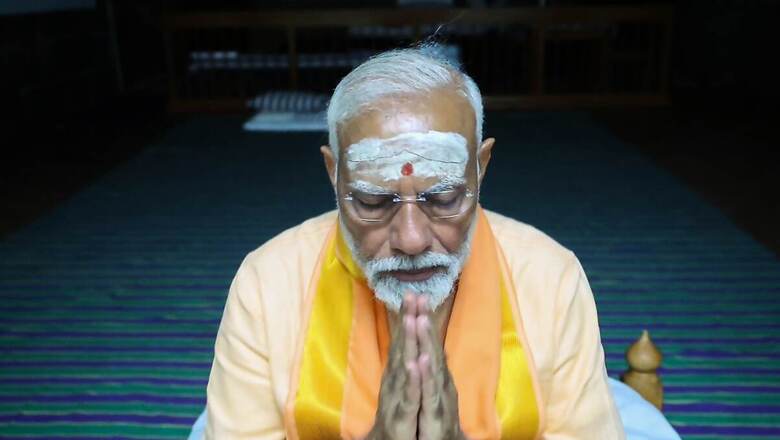
views
In today’s hyper-connected, fast-paced world, stress has become an almost inevitable part of life, particularly for young people. The constant influx of information, pressures of academic and social success, and an unrelenting schedule often take a toll on the mental health of today’s youth. However, amidst these challenges, ancient practices like meditation offer a powerful solution to restore balance, peace, and mental well-being.
The Power of Relaxation in a Chaotic World
Ma Dhyan Prachi, a meditation facilitator at Osho Dham, highlights that “today’s fast-paced world leads to stress,” and notes how difficult it has become to truly relax. She emphasizes that relaxation is not just a luxury but a necessity if we are to experience deeper aspects of life. According to her, meditation happens as a result of “deep relaxation and awareness,” offering a gateway to a calmer, more balanced state of mind.
Meditation practices like yog nidra have proven to offer immense benefits to the human mind and body. Ma Prachi points out that yog nidra has the potential to take us into deep states of meditation, allowing the mind to pause its incessant thinking. “The biggest benefit of being meditative is that the mind pauses to think nonstop,” she says, explaining how constant thinking often leads to more stress and dissatisfaction.
By adopting meditative practices, young people can learn to focus on the present moment, cultivating a sense of gratitude and appreciation for what they have. “Thankfulness is the deepest prayer possible,” Ma Prachi observes. She asserts that a meditative mind fosters this thankfulness and steers individuals away from the mental health issues that arise from stress and discontentment.
Meditation as a Tool for Resilience
Similarly, Mr. Gupta Kaushik, Founder of Mrigakshi Foundation, advocates for the transformative power of meditation in today’s stressful environment. He focuses on how the ancient wisdom of Vedic Tantra can be adapted to help young people build resilience in the face of modern mental health challenges. “Meditation, or dhyana, is not just a practice but a transformative tool that can reshape the minds of our young generation,” Mr. Kaushik explains.
Simple yet profound techniques like mantra japa (repetition of a sacred sound) and mudras (symbolic hand gestures) can help youth manage the stress, anxiety, and pressures of contemporary life. “These practices create a bridge between the inner self and the outer world, fostering balance and clarity,” says Mr. Kaushik. These techniques teach young people to connect with their inner selves, helping them develop emotional intelligence, improve focus, and achieve a greater sense of mental well-being.
The Accessibility of Meditation
One of the most compelling aspects of meditation is its accessibility. Mr. Kaushik emphasizes that just a few minutes of focused practice each day can bring about remarkable results in terms of emotional and mental health. “As young people learn to quiet their minds and connect with their inner selves, they develop emotional intelligence, improve concentration, and enhance overall mental health,” he says.
Ma Prachi concurs, noting that meditation is a practice that can be cultivated anywhere, at any time. It doesn’t require elaborate setups or long hours of commitment—just the willingness to pause, breathe, and be mindful of the present moment.
A Brighter Future for Today’s Youth
Both Ma Dhyan Prachi and Mr. Gupta Kaushik recognize the immense potential of meditation to positively impact the mental health of today’s youth. By offering them these tools early on, we can not only help individuals manage stress and anxiety but also nurture a generation of balanced, focused, and emotionally intelligent leaders for tomorrow.
As Mr. Kaushik reflects on his own experience with meditation in corporate environments, he is confident that these ancient practices can help young people thrive in high-pressure situations. “Imagine the potential if we empower our youth with these tools early on,” he suggests.
The benefits of meditation—such as improved focus, emotional intelligence, and resilience—are too valuable to overlook, especially in a world where mental health challenges are on the rise. By incorporating practices like yog nidra, mantra japa, and simple relaxation techniques into daily life, today’s youth can unlock the mental health benefits of meditation, helping them face the challenges of the modern world with grace and strength.




















Comments
0 comment